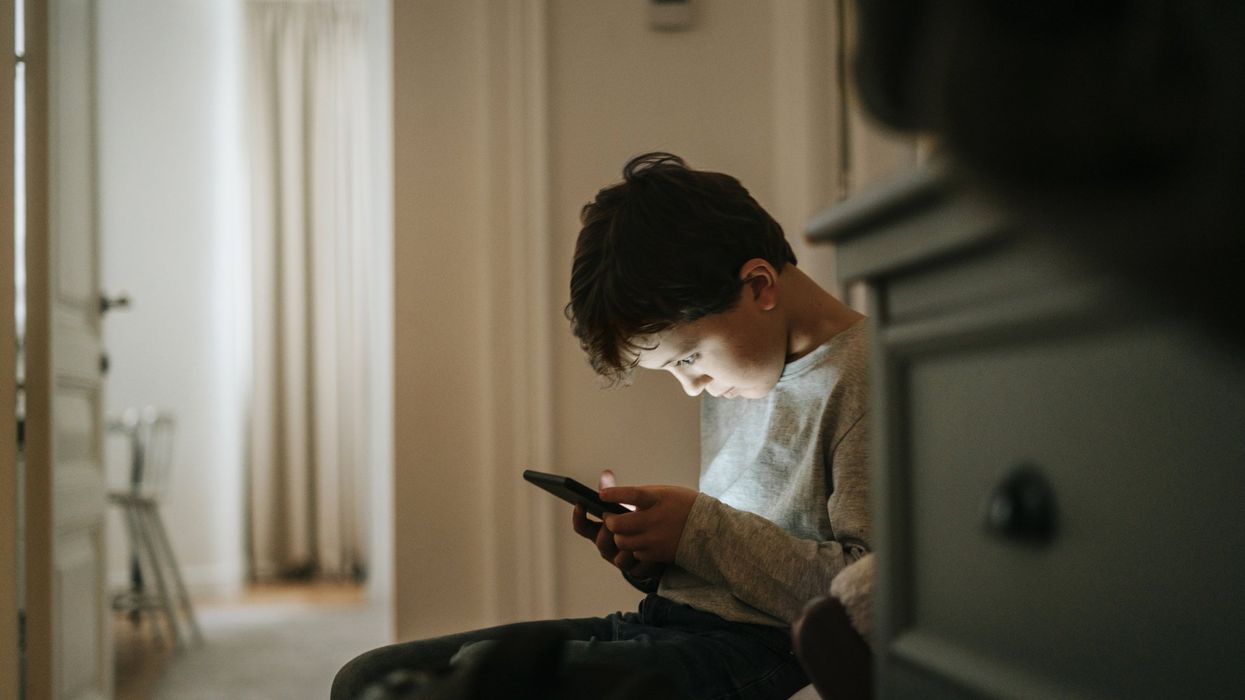
Orbon Alija/Getty

When Republicans and Democrats come together on something in Washington, D.C., rest assured that it’s an expansion of their power at the expense of yours. The Kids Online Safety Act, sponsored by Senator Richard Blumenthal (D-Conn.) and Marsha Blackburn (R-Tenn.), now boasts 62 Senate cosponsors, making it very likely to pass in the coming weeks.
KOSA and similar age-verification laws sweeping the nation require platforms to collect personal information such as a driver’s license, Social Security number, or birth certificate to verify the user's age. In the case of minors, parental consent involves sharing sensitive information for safekeeping by Big Tech companies.
Technology is advancing at a pace that parents are struggling to keep up with, and the dangers of unmoderated activity online are indeed real, but consumers still have choices they can make.
Parents today feel backed into a corner and unable to help their children navigate the online world and social media. Pornography is everywhere; algorithms are reshaping the minds of children as young as 2, and lawmakers know this. That’s why Senator Josh Hawley (R-Mo.) shook down Meta CEO Mark Zuckerberg and cajoled him into apologizing to parents on national television about the harm done to their kids on social media.
But there is another way. We do not have to write Congress yet another blank check to expand its power over free speech and association online. Despite the insistence of senators that parents need more tools to guide their children online, the tools already exist thanks to the free market and a growing movement of tech-skeptical parents who have created alternatives for families.
Our daughter just turned 13, and per our household policy, she can now have a cell phone. Instead of rushing to the Verizon or AT&T store to add a new phone to our plan, we researched devices that would give us parental controls and monitoring capabilities to keep our kid safe.
Here’s what we learned.
The Bark Phone is a modified Samsung device that can come with a case and a full suite of built-in parental controls. Parents scan a QR code and add a management app to their own devices, and from there, they can set permissions for everything that happens on their child’s phone. There is no contract, and you get unlimited talk and text starting at $39/month.
Of similar devices on the market, it’s the most flexible based on parental discretion.
Bark uses AI tools to monitor texts, emails, YouTube, 30+ apps, and social media platforms for red flags like cyber bullying, explicit content, online predators, signs of depression, thoughts of self-harm, threats of violence, and more. Parents get text or email notifications when certain red flags have been detected.
Parents can approve all contacts added to the phone, every single app download requires permission from the parent within the management app, and you can limit the hours of the day certain functions of the phone work.
We end email and texting at 11 p.m. and resume at 6 a.m. It’s your decision!
Bark is the most flexible device on the market. Just about any function of a standard smartphone can be approved by parents, and parents can control which games, social media, and streaming apps are downloaded.
Pinwheel is another excellent modified phone on the market. Pinwheel offers GPS location, prohibits web browser apps, has no social media functionality, and allows parents to manage all contacts added to the phone. You can also schedule shutdown times and observe call history.
Pinwheel does not allow for addictive features, something Congress is attempting to regulate and force on everyone. It also does not allow addictive games or an app store on the phone. Kids also cannot delete their text messages, a hugely helpful feature in parents' supervision online.
Unlike Bark, Pinwheel allows you to select your phone carrier but does cost more up front. Parents can expect to pay $199-$329 to own the device and handle the monthly data fees.
Like the other devices, Gabb allows you to test its phone out for 90 days to see if it fits your family correctly. Gabb doesn’t allow for social media or an internet browser and comes complete with GPS tracking and its cellular network.
Troomi is unique in that this device only works on a wi-fi connection. Compared to other non-addictive devices, it is comparable in price, at around $199-$300 to begin. It grants parents the same sort of moderation capability as Gabb and Pinwheel.
The government grows any chance it can get. Public fear, especially regarding the well-being of children, is a blank check of authority that no American should want written by Congress.
Technology is advancing at a pace that parents are struggling to keep up with, and the dangers of unmoderated activity online are indeed real, but consumers still have choices they can make.
Research and take action accordingly. After all, parents are the ones footing the bill for these devices on which kids spend so much of their time.
Stephen Kent is the media director for the Consumer Choice Center.
Stephen Kent